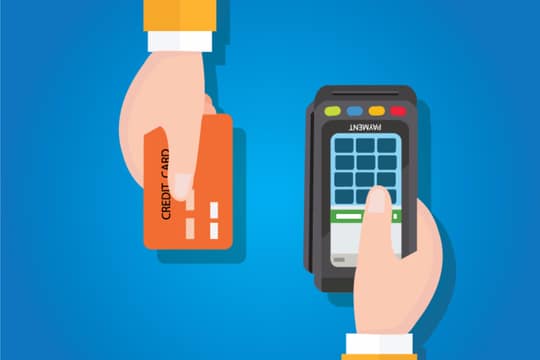Small Business Tax Deductions You Don’t Want to Miss

A-to-Z Guide to Small Business Tax Deductions
Yes, it’s that time of year again. It’s tax time. You’re living in the world of 1099s and scrambling to find receipts for this and that. And if you’re a new business owner, your mind is probably swimming with uncertainty as to what tax deductions you can and can’t take for your small business.
Well, new business or not, you work hard for your money and you don’t want to leave any of it on the table. To make sure you’re capturing all those write-offs, we’ve created an A-to-Z guide – with some tax deductions you already know about, and some that might surprise you. (As always, we recommend that you consult with your accountant or tax preparer to ensure that you can take advantage of these deductions.)
A - Auto expenses
If you use your personal vehicle for business purposes, you can usually deduct your business expenses for that vehicle. You have two avenues of deduction to choose from: either claim the standard mileage rate or report the actual expenses incurred while carrying out business-related activities. More info.
B - Bad debts
If a client never paid you for products you sold them, all is not lost. You may be able to deduct the bad debt if it meets the following criteria:
- It was a bona fide debt
- The debt was worthless (meaning there is very little chance of partially or fully collecting on the debt.)
- There was a reasonable effort made to collect on the debt
- Your business suffered an economic loss due to the bad debt Learn more about writing off bad debts here.

C - Convenience fees on credit card payments
These are the pesky fees that you are charged for the “convenience” of paying bills with a credit card (as opposed to non-fee methods of payment, like checks.) Depending on the size of the bill and the number of bills you pay with a credit card, these fees can add up fairly quickly. Be sure to keep track of every single one to get the maximum deduction. More info.
D - Dues
You can deduct association dues for professional, civic, and business organizations, as long as the organization’s primary purpose is not providing entertainment facilities (like a country club.) Avoid calling it “dues” on your tax return. Instead, refer to it as a “trade association membership fee.” [More info] (https://www.irs.gov/publications/p535/ch11.html#en_US_2010_publink1000209177). 
E - Education
Tuition for education counts as a deduction if it meets two criteria: 1) it is necessary for you to remain employed and 2) it improves or maintains your employment trade or business skills. More info.
F - Freelancers
If you hire freelancers (independent contractors) to perform services for your company, you can deduct the amounts you pay them as a business operating expense. Payments to those eligible to receive a 1099 are claimed on line 11 of the Schedule C. You can also claim the payments made to those contractors you paid less than the $600 required for a 1099. For more information, refer to Line 11 on page C-6 of the IRS instructions for Schedule C.
G - Gifts
You are allowed to deduct up to $25 per person, per year. To obtain any deduction for a business gift, you must retain documentation supporting the following: (1) the gift’s cost and a description of it, (2) the date it was acquired, (3) the business purpose of the gift, and (4) the business relationship to the taxpayer of the person receiving the gift. More info.
(Note that there may be some exceptions to the $25 limit. For example, gifts given to a company for use in the business (not a person) aren’t subject to that rule. Check with your tax accountant for other exceptions.)
H - Health insurance premiums
The big, bad world of health insurance has gotten more challenging than ever. One good thing is that you can write off your health insurance premiums. More info. 
I - Interest
Whether you pay the interest on a bank loan, personal loan, credit card, line of credit, car loan, or real estate mortgage – if it is for business, then it is usually a deductible business expense. What’s nice is that it doesn’t matter whether the collateral you used to get the loan was business or personal property. If you use the loan money for business reasons, the interest you pay to get that money is a legitimate deductible business expense. More info.
J - Janitorial
Regardless of the type of business you operate, if you rent office space, a factory, a warehouse, or a storefront, cleaning is a necessary expense. Whenever you incur cleaning costs in a business context, it is entirely deductible. So stop cleaning the bathroom yourself!
K - Kids
Hire them! If you hire your children as employees to do legitimate work in your business, you may deduct their salaries from your business income as a business expense. Note that your child will have to pay tax on the salary only to the extent it exceeds the standard deduction amount for the year. Even better, if your child is under 18, you won’t have to withhold or pay any FICA (Social Security or Medicare) tax on the salary (although there are some exceptions, so check with your tax accountant to be sure.) More info.
L - Lodging
When traveling out of town for business, you might as well stay in a nice hotel because the entire cost is tax deductible. More info. 
M - Meals - As opposed to lodging mentioned above, you can only deduct only 50% of your meals while traveling, and that is if the meals are not “lavish or extravagant.” (Our advice? Stay at a lovely hotel but eat on the cheap.) More info.
N - Newspapers
As long as they are for business use, subscriptions to magazines, newspapers, journals, newsletters, and other similar publications can be a deductible expense. This includes internet-based subscriptions for websites or even the subscriptions you have for your entrance or foyer. More info.
O - Office supplies
It’s so easy to forget these things, but the expenses for office supplies can add up fast. Items that can be written-off are the traditional, tangible office items like pens, paper, staplers, sticky notes, paper clips, USB thumb drives, and the like. More info.
P - Postage
Snail mail isn’t so bad after all! As long as what you’re mailing or shipping is business-related, you can deduct the entire cost of postage, envelopes, P.O. Box rental fees and delivery services like FedEx and UPS. Also, if your business sells physical goods and you pay the cost of shipping, those fees are tax deductible. This is an excellent way to entice new business (by using free shipping as a way to get more sales) without incurring additional costs.
Q - Quickbooks
And not just Quickbooks, but any off the shelf software or software subscription that you use for your business qualifies as a write-off. It has to be software that is available to the general public and is not a unique, custom-coded program for your business. See this information on Section 179 deductions to learn more about the qualifications. 
R - Retirement plans
Contributions to a tax-qualified retirement account can be written off as deductions. Note that Roth IRAs and Roth 401(k)s don’t count, but other retirement vehicles, such as SEP-IRAs or SIMPLE IRAs, do. More info.
S - Startup costs
Also known as capital costs, these are the costs related to things done before you opened your business. For example, these could be the expenses you incurred to explore business opportunities or the costs to create ads for a grand opening event. In your first year of business, you can deduct up to $5000 in startup costs. For more information, see the U.S. Small Business Administration’s article on Startup Cost Tax Deductions.
T - Telephone
Your business phone is such a vital tool for handling every aspect of your business. It also offers an excellent tax deduction. There are percentages that you can deduct depending on the use. For instance, if you work from home and use the same line that you use for personal calls, you would not be able to deduct anything but the actual calls made. However, if you have a second phone line that you use solely for the business, you can deduct the entire bill.
U - Utilities
All those bills for your utilities, including electricity, water, and gas, can be written off. In fact, if you have a legitimate home office, you can write off a portion of your utilities as well. Don’t forget about your telephone, Internet and trash bills too. More info.
V - Vehicle
A big vehicle can mean a big write-off! If you’re in the market for a brand new, heavy SUV or pickup for business use, you may be able to write off the entire expense. MarketWatch provides a detailed article (with examples) on the rules and regulations around this practice so that you can take advantage of it too.
W - Workers’ compensation insurance
Small businesses that are sole proprietorships, partnerships, or limited liability corporations, are allowed to deduct costs for workers’ compensation insurance from their federal and state taxes. Note that workers’ compensation premiums are only deductible when state government requires that insurance for your business. Rules vary widely from state to state, so check with your tax preparer to be sure. More info.
X - Xerox machines
You’ve got to have certain equipment to operate your business, so copiers, computers, servers, printers, cash registers, and phone systems all qualify for deductions. Depending on the business, you may also need specialized equipment such as tools, manufacturing equipment, or heavy machinery. You can deduct all of this equipment used in the operation of a business by writing off the entire expense up front or by depreciating it over time. More info.
Y - Yealink phones
For those small businesses that are investing in a new phone system, we have to mention our excellent VoIP phones (available through magicJack for BUSINESS.) Both the phones and the phone service are fully tax deductible for your business.
Z - Zones
If your business is located in particular deduction zones, you may qualify for additional tax deductions. These include the New York Liberty Zone, Enterprise Zone, Renewal Community Zone, and the Gulf Opportunity Zone. More info.
These are just a few of the tax deductions that you can use to reduce the gross income for your business, and therefore, your tax burden. You can find more detailed information on the IRS website on deducting business expenses.
And if you are ready to add a professional phone system to your list of deductible business expenses this year, give magicJack a try. We offer a zero dollar, 30-day free trial, so what have you got to lose? Contact us today!